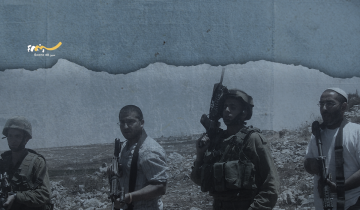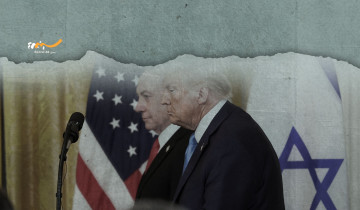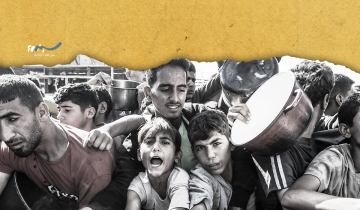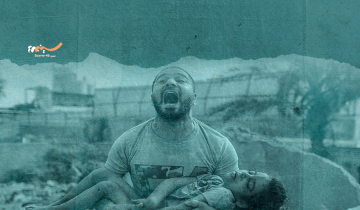Do You See Me?! Do You Hear My Voice?!
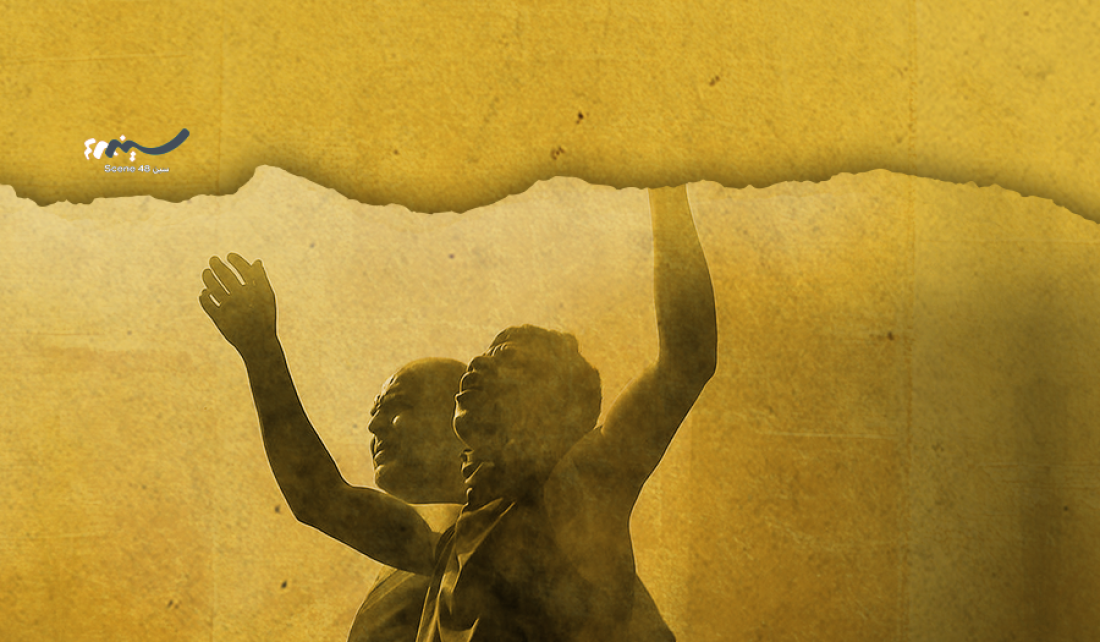
Roots of Exile: Family, Displacement, and Hope
Writing about my personal experience as a Palestinian in exile makes me conflicted. I am a Palestinian whose family hails from ‘Askalan (al-Jura), Palestine. We were forced out of ‘Askalan and into Gaza in 1948, initially living in UN tents with hopes of a swift return. A dozen years later, hope faded. To house over two hundred thousand Palestinian refugees, the UN built simple houses with brick walls and asbestos roofs, forming eight refugee camps across the Gaza Strip, which is forty-one kilometers (twenty-five miles) long and from six to twelve kilometers (3.7 to 7.5 miles) wide.
My grandparents, uprooted from ‘Askalan, clung to their house keys and deeds, holding tightly to the hope of return; to their house, their village, their neighbors, and their land - to the beautiful life they had been forced to leave behind, but about which they never stopped speaking, describing it to me in vivid nostalgic detail. Yet, in these refugee camps, they had no control of their lives. They were like sheep herded by regional and international forces serving foreign interests, by bureaucrats who had no understanding of the rich ethnic, linguistic, religious, and cultural diversity of the refugee population. They were assigned a collective, imagined identity, and set of expectations.
My grandparents did their best to adapt to this new reality, but it failed to recognize their existence, true identity, humanity, and rights. The complex history persists today and is why I found myself at a loss when asked to tell my story. Where to begin? How to narrate a reality that clashes with aggressively entrenched dominant narratives?
While some advocate coexistence and peace, the dominant voices tend toward extremism; voices that deny our very existence, that falsely claim the land was empty. This lie makes Palestinians wonder: are we invisible?
My first shock of this denial came during my undergraduate studies in modern languages. To improve my English, I tuned to CNN, BBC, and the like. The media narratives were filled with suspicion and accusations towards Palestinians, often portraying us as outsiders or barbarians, while ignoring or justifying Israeli crimes, from occupation to killing Palestinians!
The Struggle to Exist in a World of Ignorance
To sustain their lies, extremists have attempted ethnic cleansing (not only of Palestinians but also Palestinian Jews, Christians, Assyrians, Circassians, and Arameans) along with the erasure of any record of the people of the land, by killing, renaming places, and destroying documents and buildings. Their attempts have failed, because we do exist.
Beyond mass killing and destruction, they rely on time to erase Palestine from memory and extinguish our rights. My grandparents have passed away, the first generation of Palestinian refugees, leaving behind my parents, uncles, aunts, members of the second generation of Palestinian refugees and then their children and grandchildren, generations three and four and so on. Generation upon generation, we Palestinians continue to live as refugees, and we continue to exist.
My own journey took me to Malaysia for postgraduate studies, and I had the opportunity to visit several countries, where I encountered global ignorance about Palestine. Many still see us through stereotypes: poverty, helplessness, or outright hostility. Still others just wished we did not exist at all, while those in politics wanted to control what we believed and thought, how we should behave and what we should say about ourselves.
Years later, on a sunny afternoon in the city of Los Angeles in 2021, I was listening to the radio in my car when I heard a church pastor preaching: “There is no such thing as the Palestinian people or Palestine.” I stopped, stunned. I looked into the mirror and asked myself: Am I a ghost? Are the eight million Palestinians, inside Palestine and in exile, fictional? Do our lives, our pain, matter?
Mourning in Exile: Personal Pain and Global Indifference
It’s Monday, 19 May 2025; my thirty-eighth birthday. On this day for the past fifteen years, after I left Gaza and my personal exile away from my refugee family began, I had always received a message from my parents and siblings wishing me a happy birthday. This year, I received a message as well. But instead of birthday wishes, it carried horrifying and heartbreaking news. My sister Safa (35), her husband Mohammed (38), and their four children: Ahmed (12), Ayesh (10), Siwar (5), and Kosai (just two weeks old), had been killed in their home in Deir al-Balah refugee camp by an Israeli airstrike two days earlier.
I wept dearly, not only to mourn Safa’, a sister and a wonderful human being, wife, mom, and teacher, but also to mourn humanity and those who claim to uphold human rights and democracy. I shared this news with U.S. senators, academics, and leading news outlets; responses were silence of condolences.
This bias in official and media responses reflects a painful truth: no, the world does not see us. No, it does not hear us.
The killing of Palestinians as a way to erase them is nothing new. In 2001, an Israeli tank fire killed my four-month-old cousin Iman Hijjo cradled in her mother’s arms. Under global pressure, Israel apologized, calling it a mistake. Yet the killing of Palestinian children continue,“In total, more than 50,000 [Palestinian] children have reportedly been killed or injured since October 2023.
These children had no voice, no media coverage, but a continued world denial of their existence and suffering with a fantasy to erase them from the world’s memory.
The Unyielding Reality of Our Existence
The continued failure to recognize the facts that we, Palestinians, exist and that the land has had people only adds to the suffering of the Palestinian people. The ongoing attempts to ethnically cleanse the occupied territories, along with the dissemination of fear and threats through ideologically-laden narratives (narratives that aggressively dominate the media and official discourse and silence the public) will never succeed. Simply because we do exist. It’s time to see and hear us.
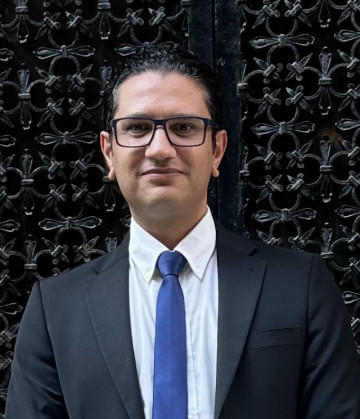
Dr. Nael Hijjo
A Palestinian displaced scholar living in the United States.
